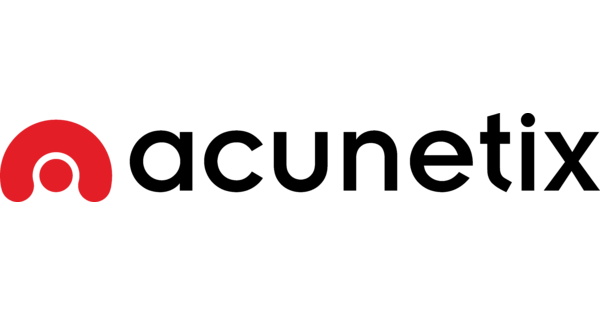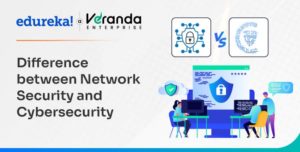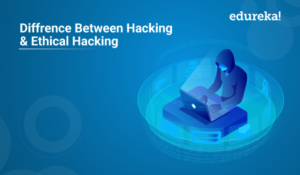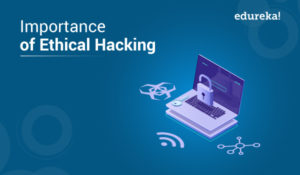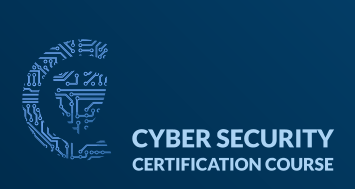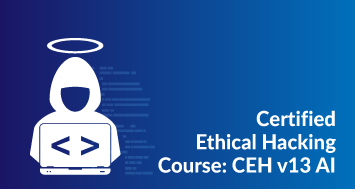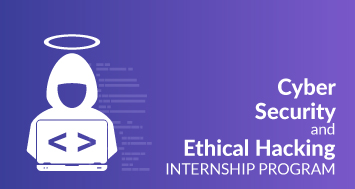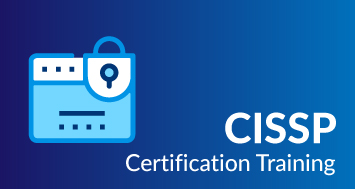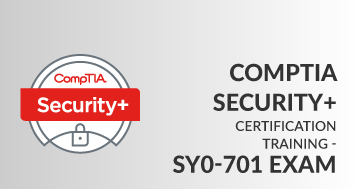Automation has left its imprint on every industry out there, and the realm of ethical hacking is no different. With the onset of various tools in the ethical hacking industry, it has been transformed. Ethical hacking tools help in information gathering, creating backdoors and payloads, cracking passwords and an array of other activities. In this article, we’ll be discussing the top ethical hacking tools to use in 2025.
What are Hacking Tools and Softwares
Hacking tools are programs that may breach computer and network security, allowing unauthorized data access. Ethical hacking tools play an essential role in defending against cyber attacks, assisting IT security professionals in identifying flaws in systems and networks before malicious actors do. They are used by ethical hackers to secure digital data, particularly in the banking sector.
These tools are available in open source or commercial solutions and can be downloaded from the browser for malicious purposes. However, misuse of cyber security tools is illegal and against ethical standards.
Importance of Hacking Tools To Hackers At The Present Time
The importance of hacking tools to hackers in the present time is significant and multifaceted. These tools enable hackers to carry out a variety of cyber operations ranging from ethical hacking, which aims to enhance cybersecurity measures, to malicious hacking, which seeks unauthorized access to systems, data theft, or the disruption of digital services. The evolution and proliferation of hacking tools have transformed the cybersecurity landscape, making it essential for cybersecurity professionals to stay informed and vigilant.
Here are the following reasons why hacking tools are so important for ethical hackers to use:
- Efficiency and Automation
- Accessibility
- Diversity of Tools
- Complexity of Cybersecurity Threats
- Anonymity and Stealth
- Legitimacy and Legal Use
For ethical hackers, these tools are indispensable in identifying and mitigating vulnerabilities to protect digital assets. For black hat hackers, these tools facilitate the exploitation of vulnerabilities for various illegal activities.
Top Ethical Hacking Tools To Use in 2025 Based On Their Functionality
Network Scanning Tools
1. Zenmap
Features:
- User-Friendly Nmap Interface
- Simplifies Nmap usage for a broader audience.
- Provides visual representation of Nmap scan results.
- Supports profile saving for efficient security assessments.
Pricing: Free and open-source.
2. Angry IP Scanner
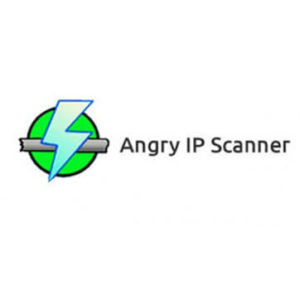 It is light and easy to use, with a primary focus on IP address and port scanning. Angry IP Scanner is well-known for its fast and efficient discovery of active hosts on a network.
It is light and easy to use, with a primary focus on IP address and port scanning. Angry IP Scanner is well-known for its fast and efficient discovery of active hosts on a network.
Features:
- Angry IP Scanner is multi-platform, working on Windows, macOS, and Linux.
- It is well-known for its speed in scanning IP addresses and ports for active hosts.
- It is designed for users of different technical expertise by providing a user-friendly interface.
Pricing: Free
3. Advanced IP Scanner
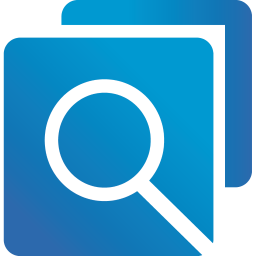 Advanced IP Scanner is a user-friendly Windows network scanner developed by Famatech that is well-known for remote computer control, access to shared folders, and remote shutdown capabilities. Its ease of use and functionality make it an invaluable tool for effective network management.
Advanced IP Scanner is a user-friendly Windows network scanner developed by Famatech that is well-known for remote computer control, access to shared folders, and remote shutdown capabilities. Its ease of use and functionality make it an invaluable tool for effective network management.
Features:
- User-friendly interface.
- Remote computer control.
- Access to shared folders.
- Remote shutdown capability.
Pricing: Free to use.
4. Fping
 Fping quickly diagnoses network issues by sending simultaneous ICMP pings to multiple hosts. It is well-known for its efficiency in identifying active hosts, making it an indispensable tool for troubleshooting and monitoring tasks.
Fping quickly diagnoses network issues by sending simultaneous ICMP pings to multiple hosts. It is well-known for its efficiency in identifying active hosts, making it an indispensable tool for troubleshooting and monitoring tasks.
Features:
- Timeouts and intervals can be specified in the command line in a variety of ways.
- Support for IPv4 and IPv6 addresses, which improves compatibility.
- Extensibility via scripting, allowing for customized network testing functionality.
Pricing: Free to use.
5. Unicornscan
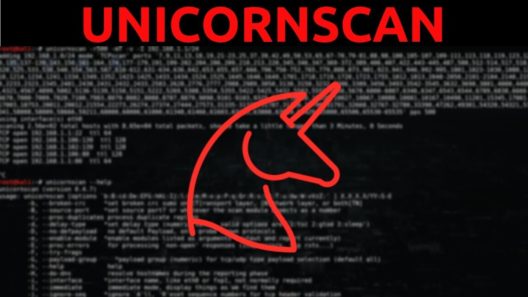 Unicornscan is an effective network scanning tool with features such as SYN/ACK scanning and module-based designs for versatility in security assessments.
Unicornscan is an effective network scanning tool with features such as SYN/ACK scanning and module-based designs for versatility in security assessments.
Features:
- TCP, UDP, ICMP, and SNMP are all supported protocols.
- Advanced banner grabbing for identifying service versions.
- Real-time results analysis and scan configurations that can be customized.
Pricing: Free to use.
6. Netcat
 Netcat, also known, a versatile network tool, allows for data transfer and communication across networks while also serving as a powerful Swiss Army knife for network troubleshooting and security tasks.
Netcat, also known, a versatile network tool, allows for data transfer and communication across networks while also serving as a powerful Swiss Army knife for network troubleshooting and security tasks.
Features:
- Bidirectional data transfer capability.
- Port scanning and port listening functionalities.
- Scriptable for automation in network tasks.
Pricing: Free to use.
7. NetScanTools
 NetScanTools provides complete network scanning and diagnostics, as well as tools for analyzing, monitoring, and securing networks.
NetScanTools provides complete network scanning and diagnostics, as well as tools for analyzing, monitoring, and securing networks.
Features:
- Domain analysis tools for DNS.
- Email header analysis software.
- Calculators for traceroute, ping, and IP address for network troubleshooting.
Pricing: Paid
8. Nessus
 Nessus is a robust vulnerability scanning and assessment platform that assists organizations in identifying and correcting security flaws.
Nessus is a robust vulnerability scanning and assessment platform that assists organizations in identifying and correcting security flaws.
Features:
- Checks for regulatory standards compliance.
- Integration of patch management for effective vulnerability remediation.
- Extensive reporting capabilities for presenting security findings clearly.
Pricing: Paid
9. Nmap
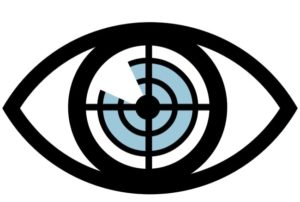 Nmap, short for Network Mapper, is a reconnaissance tool that is widely used by ethical hackers to gather information about a target system. This information is key to deciding the proceeding steps to attack the target system. Nmap is cross-platform and works on Mac, Linux, and Windows. It has gained immense popularity in the hacking community due to its ease of use and powerful searching & scanning abilities.
Nmap, short for Network Mapper, is a reconnaissance tool that is widely used by ethical hackers to gather information about a target system. This information is key to deciding the proceeding steps to attack the target system. Nmap is cross-platform and works on Mac, Linux, and Windows. It has gained immense popularity in the hacking community due to its ease of use and powerful searching & scanning abilities.
Features:
- Audit device security
- Detect open ports on remote hosts
- Network mapping and enumeration
- Find vulnerabilities inside any network
- Launch massive DNS queries against domains and subdomains
Ethical Hacking Tutorial For Beginners
This Edureka “Ethical Hacking Tutorial for Beginners” video will give you an introduction to Ethical Hacking. This video will talk about key topics of Ethical Hacking for beginners! Below are the topics covered in this Ethical Hacking Tutorial
Vulnerability Scanning Tools
1. OpenVAS
 OpenVAS is an open-source vulnerability scanner that offers a comprehensive solution for identifying and managing computer security issues, with regular updates and support for various network protocols.
OpenVAS is an open-source vulnerability scanner that offers a comprehensive solution for identifying and managing computer security issues, with regular updates and support for various network protocols.
Features:
- Configurable scan profiles for specific security assessments.
- CVE (Common Vulnerabilities and Exposures) compatibility.
- Comprehensive reporting capabilities for comprehensive analysis.
Pricing: Free
2. Acunetix
Acunetix is an automated web application security testing and ethical hacking tool. It is used to audit your web applications by checking for vulnerabilities like SQL Injection, cross-site scripting, and other exploitable vulnerabilities. In general, Acunetix scans any website or web application that is accessible via a web browser and uses the HTTP/HTTPS protocol.
Acunetix offers a strong and unique solution for analyzing off-the-shelf and custom web applications including those utilizing JavaScript, AJAX and Web 2.0 web applications. Acunetix has an advanced crawler that can find almost any file. This is important since what is not found cannot be checked.
Features:
- Over 6,500 vulnerabilities have been identified.
- HTML5, JavaScript, and Single Page Applications (SPAs) are all supported.
- Integration with issue tracking systems for faster resolution.
Pricing: Paid
3. Qualys Cloud Platform
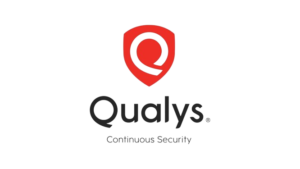 Qualys Cloud Platform is a cloud-based security solution that provides continuous monitoring and compliance management to protect businesses from evolving cyber threats.
Qualys Cloud Platform is a cloud-based security solution that provides continuous monitoring and compliance management to protect businesses from evolving cyber threats.
Features:
- Asset tagging for more efficient management.
- Integration of threat intelligence for proactive security measures.
- Security and compliance checks are automated for efficiency.
Pricing: Paid
4. Nexpose
 Nexpose is a vulnerability management solution known for its extensive scanning capabilities and risk prioritization, which helps organizations in efficiently identifying and addressing security flaws.
Nexpose is a vulnerability management solution known for its extensive scanning capabilities and risk prioritization, which helps organizations in efficiently identifying and addressing security flaws.
Features:
- Risk scoring in real time to prioritize critical vulnerabilities.
- Integration with well-known security information and event management (SIEM) applications.
- Remediation workflows that are automated for quick security response.
Pricing: Paid
5. SAINT Security Suite
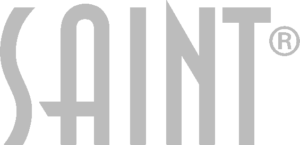 SAINT Security Suite provides multi-vector vulnerability scanning and penetration testing, allowing for a comprehensive approach to identifying and correcting security flaws. It is a paid solution that combines various scanning techniques to provide comprehensive security assessments.
SAINT Security Suite provides multi-vector vulnerability scanning and penetration testing, allowing for a comprehensive approach to identifying and correcting security flaws. It is a paid solution that combines various scanning techniques to provide comprehensive security assessments.
Features:
- Penetration testing capabilities for assessing network resilience.
- Integration with threat intelligence feeds for proactive security measures.
- Detailed reporting and analysis for comprehensive vulnerability management.
Pricing: Paid
6. Nikto
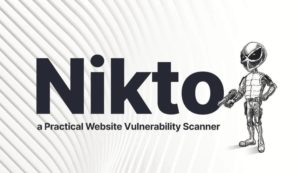 Nikto is another favorite, well-known as part of the Kali Linux Distribution. Other popular Linux distributions such as Fedora already come with Nikto available in their software repositories as well. This security tool is used to scan web servers and perform different types of tests against the specified remote host. Its clean and simple command line interface makes it really easy to launch any vulnerability testing against your target.
Nikto is another favorite, well-known as part of the Kali Linux Distribution. Other popular Linux distributions such as Fedora already come with Nikto available in their software repositories as well. This security tool is used to scan web servers and perform different types of tests against the specified remote host. Its clean and simple command line interface makes it really easy to launch any vulnerability testing against your target.
Features:
- Detects default installation files on any operating system
- Detects outdated software applications
- Integration with Metasploit Framework
- Run cross-site scripting vulnerability tests
- Execute dictionary-based brute force attacks
- Exports results in plain text, CSV or HTML files
Pricing: Free
7. GFI LanGuard
GFI LanGuard is a network vulnerability scanning and patch management tool that provides a comprehensive solution for identifying and addressing security vulnerabilities.
Features:
- Automated patch management for effective vulnerability remediation.
- Vulnerability assessments are performed across the network to ensure complete security coverage.
- Integration with popular ticketing systems for streamlined issue resolution.
Pricing: Paid
8. SQLninja
SQLNinja is another SQL vulnerability scanner bundled with Kali Linux distribution. This ethical hacking tool is dedicated to target and exploit web apps that use MS SQL Server as the backend database server.
Features:
- Test database schema
- Fingerprint remote database
- Brute force attack with a word list
- Direct shell & reverse shell
SQLNinja is available in multiple Unix distros where the Perl interpreter is installed, including:
- Linux
- Mac OS X & iOS
- FreeBSD
Pricing: Free
Password Cracking Tools
1. John the Ripper
 John the Ripper is one of the most popular password crackers of all time. It’s also one of the best security tools available to test password strength in your operating system, or for auditing one remotely. This password cracker is able to auto-detect the type of encryption used in almost any password and will change its password test algorithm accordingly, making it one of the most intelligent password cracking tool ever. JTR uses a variety of attack methods to uncover weak passwords, including dictionary attacks and brute force. It is highly customizable and supports multiple encryption algorithms for efficient password auditing.
John the Ripper is one of the most popular password crackers of all time. It’s also one of the best security tools available to test password strength in your operating system, or for auditing one remotely. This password cracker is able to auto-detect the type of encryption used in almost any password and will change its password test algorithm accordingly, making it one of the most intelligent password cracking tool ever. JTR uses a variety of attack methods to uncover weak passwords, including dictionary attacks and brute force. It is highly customizable and supports multiple encryption algorithms for efficient password auditing.
Features:
- GPU acceleration makes password cracking faster.
- For systematically testing password strength, use incremental mode.
- Password cracking rules contributed by the community for various attack strategies.
This ethical hacking tool uses brute force technology to decipher passwords and algorithms such as:
- DES, MD5, Blowfish
- Kerberos AFS
- Hash LM (Lan Manager), the system used in Windows NT / 2000 / XP / 2003
- MD4, LDAP, MySQL (using third-party modules)
Another bonus is that JTR is open source, multi-platform and fully available for Mac, Linux, Windows, and Android.
Pricing: Free to use.
2. Hashcat
Hashcat is a powerful password cracking tool that makes use of GPU power to efficiently crack passwords. It supports a wide variety of algorithms, including hash algorithms, which are commonly used in modern encryption.
Features:
- Multiple hashing algorithms (MD5, SHA-1, bcrypt, etc.) are supported.
- Advanced mask and rule-based password cracking attacks.
- Capabilities for resuming interrupted cracking attempts via session restore.
Pricing: Free to use.
3. Cain and Abel
Cain and Abel is a multi-method password recovery tool that supports dictionary attacks and brute force. It is well-known for recovering passwords from network protocols and wireless networks.
Features:
- Attacks on various password hashes using cryptanalysis.
- ARP spoofing is used to sniff passwords on local networks.
- Capabilities for wireless network auditing for security assessments.
Pricing: Free to use.
Exploitation Tools
1. Metasploit
Metasploit is an open-source pen-testing framework written in Ruby. It acts as a public resource for researching security vulnerabilities and developing code. This allows a network administrator to break into his own network to identify security risks and document which vulnerabilities need to be addressed first. It is also one of the few ethical hacking tools used by beginner hackers to practice their skills. It also allows you to replicate websites for phishing and other social engineering purposes. The framework includes a set of security tools that can be used to:
Features:
- Modules for exploiting various vulnerabilities.
- Payloads used to deliver and execute arbitrary code.
- Options for automated and manual exploitation for greater testing flexibility.
Supported platforms include:
- Mac OS X
- Linux
- Windows
Pricing: Paid (Free version available)
2. Burp Suite
Burp Suite is a comprehensive web application security testing tool that aids in web application scanning, crawling, and assessing security. It is widely used to detect and correct vulnerabilities in web applications.
Features:
- HTTP requests can be intercepted and modified using proxy functionality.
- Advanced scanning algorithms are used to detect various web vulnerabilities.
- Collaborative features for security assessment teamwork.
Pricing: Paid (Free version available)
3. Canvas
Canvas is a great alternative to Metasploit, offering more than 800 exploits for testing remote networks. Immunity’s CANVAS makes available
- hundreds of exploits
- an automated exploitation system
- comprehensive reliable exploits development framework to penetration testers and security professionals worldwide
Features:
- Takes screenshots of remote systems
- Downloads passwords
- Modifies files inside the system
- Escalates privileges to gain administrator access
- Remote network exploitation
This ethical hacking tool also lets you use its platform to write new exploits or use its famous shellcode generator. It also integrates an alternative to nmap called scanrand, which is especially useful for port scanning over mid to large networks. Enroll in our Certified Ethical Hacking Course: CEH v13 AI program to learn more about the ethical hacking tool.
Supported platforms include:
- Linux
- MacOSX
- Windows
Pricing: Paid
Packet Sniffing and Spoofing Tools
1. Wireshark
Wireshark is a free open-source software that allows you to analyze network traffic in real time. Thanks to its sniffing technology, Wireshark is widely known for its ability to detect security problems in any network, as well as for its effectiveness in solving general networking problems. While sniffing the network, you’re able to intercept and read results in human-readable format, which makes it easier to identify potential problems (such as low latency), threats and vulnerabilities.
Features:
- Saves analysis for offline inspection
- Packet browser
- Powerful GUI
- Rich VoIP analysis
- Inspects and decompresses gzip files
- Reads other capture files formats including Sniffer Pro, Tcpdump, Microsoft network monitor, Cisco Secure IDS IPlog, etc.
- Exports results to XML, PostScript, CSV, or plain text
Wireshark supports up to 2000 different network protocols, and is available on all major operating systems including:
- Linux
- Windows
- Mac OS X
Pricing: Free
2. Tcpdump
The command-line packet capture tool tcpdump allows users to intercept and display network traffic. It provides a lightweight and efficient method for real-time packet capture and analysis.
Features:
- Filtering options for advanced users based on a variety of criteria.
- Reading and writing packets in various file formats is supported.
- Compatibility with numerous operating systems.
Pricing: Free
3. Ettercap
Ettercap is a comprehensive network sniffing and man-in-the-middle attack tool. It enables network traffic interception, analysis, and modification, making it useful for security assessments.
Features:
- Connection and session management in real time.
- Filters that are protocol-specific for targeted analysis.
- Support for plugins for extending functionality.
Pricing: Free
Wireless Hacking Tools
1. Wifite
Wifite is a wireless auditing tool that automates Wi-Fi attacks by intercepting WPA handshakes and conducting dictionary attacks.
Features:
- Pixie Dust Attacks Overview
- Multiple attack methods.
- Customizable settings.
Pricing: Free
2. Kismet
Kismet is a passively monitored wireless network detector, sniffer, and intrusion detection system that provides insights into detected networks, access points, and clients.
Features:
- Channel Hopping
- Hidden Network Detection
- GPS integration for mapping.
Pricing: Free
3. Reaver
Reaver specializes in Wi-Fi Protected Setup (WPS) attacks, which involve exploiting vulnerabilities in order to obtain WPA/WPA2 pre-shared keys.
Features:
- Automated WPS Pin Attacks
- Real-time progress tracking.
- Wide router compatibility.
Pricing: Free
Web Application Hacking Tools
1. Skipfish
Skipfish is a web application security scanner that detects weaknesses in websites. It searches and monitors thoroughly, generating reports to aid in the security of web applications.
Features:
- High-Speed Crawling and Scanning
- Adaptive content recognition.
- Customizable wordlists for fuzzing.
Pricing: Free
2. Grendel-Scan
Grendel-Scan is a web application security testing tool that detects security vulnerabilities in web applications. It provides automated scanning for common vulnerabilities as well as detailed remediation reports.
Features:
- Cross-Site Scripting & SQL Injection Detection
- Session management testing.
- Platform support.
Pricing: Free
Forensic Tools
1. EnCase
EnCase is a popular digital forensic tool for collecting, analyzing, and storing evidence from electronic devices. It has extensive forensic capabilities, such as disk imaging and advanced analysis.
Features:
- Timeline Analysis for Event Reconstruction
- Memory analysis for volatile data examination.
- Email and mobile device forensics.
Pricing: Paid
2. Autopsy
Autopsy is an open-source digital forensics platform that makes analyzing disk images and extracting evidence easier. It is user-friendly and includes features for both novice and experienced investigators.
Features:
- Rapid data identification through keyword and hash searches.
- Timeline and file system analysis.
- Integration with other forensic tools.
Pricing: Free
Social Engineering Tools
1. King Phisher
King Phisher is a phishing attack social engineering toolkit. It aids in the creation and deployment of phishing campaigns, allowing security professionals to test and improve user awareness.
Features:
- Email Template Customization
- Simulated credential harvesting.
- Utilized for campaign effectiveness reporting and analytics.
Pricing: Free
2. Maltego
Maltego is an extremely effective open-source intelligence and forensics application. It is intended for link analysis and data mining, and it aids in the visualization of complex relationships and the discovery of connections across multiple data sources.
Features:
- Data Relationship Graphical Representation
- Integration with multiple repositories.
- Custom transforms for functionality extension.
Pricing: Paid
Miscellaneous Tools
1. OpenSSL
OpenSSL is a free and open-source toolkit that implements the SSL/TLS protocols. It’s widely used for secure communication as well as cryptographic functions like encryption and digital signatures.
Features:
- Cryptographic Algorithm Supports various algorithms.
- Command-line tools for certificate management.
- Implements SSL/TLS protocol.
Pricing: Free
2. Pcredz
Pcredz is a utility for extracting sensitive data from Windows credential files. It specializes in recovering plaintext passwords and hashes from memory dumps, which is useful in post-exploitation scenarios.
Features:
- Plaintext Password Extraction.
- Lightweight and efficient post-exploitation analysis.
- Command-line interface for flexibility.
Pricing: Free
Looking for a challenging and rewarding career in cybersecurity? Enroll in the CISSP Online Training.
Top 10 Technologies To Learn In 2025 | Top Trending Technologies in 2025 | Edureka
In this video, we explore the Top 10 Technologies to Learn in 2025 that will shape the future of industries and careers. From Generative AI driving innovation and creativity to Cybersecurity safeguarding the digital landscape, this video has it all. Learn how DevOps streamlines development processes, Cloud Computing enables flexibility and scalability, and Extended Reality (XR) transforms the way we interact with virtual and real-world environments. Along with these technologies, we also dive into the salary potential for each field, giving you insights into the most rewarding career paths. Whether you’re a student, professional, or tech enthusiast, this video highlights the essential skills and trends you need to future-proof your career. Watch now to stay ahead in the ever-evolving world of technology!
This brings us to the end of this “Top 10 Ethical Hacking Tools”. For more information regarding cybersecurity, you can check out my other blogs. If you wish to learn Cybersecurity and build a colorful career in this domain, then check out our Cyber Security certification Course which comes with instructor-led live training and real-life project experience. This training will help you understand cybersecurity in depth and help you achieve mastery over the subject.
Related Post Reverse lookups for footprinting
Related Question Ruby penetration testing tools
Related Post : 11 Best Programming Languages for Hacking in 2025
Learn Cybersecurity the right way with Edureka’s Cyber Security Masters Program and defend the world’s biggest companies from phishers, hackers and cyber attacks.






